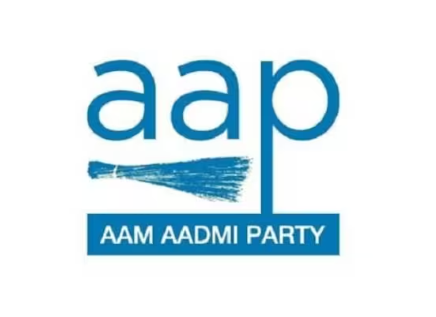Aam Aadmi Party
The Aam Aadmi Party (AAP) was formally launched on November 26, 2012. The party was founded by Arvind Kejriwal, a former Indian Revenue Service officer and social activist, along with other activists of the India Against Corruption movement. The party’s primary focus is on fighting corruption, promoting transparency, and implementing participatory governance.
Origin and Formation
The origins of the Aam Aadmi Party can be traced back to the India Against Corruption (IAC) movement, led by social activist Anna Hazare in 2011. The movement demanded the implementation of the Jan Lokpal Bill, which aimed to establish an independent anti-corruption ombudsman. Arvind Kejriwal, a prominent member of the IAC, along with other activists, decided to enter politics and form a new party to further their agenda.
The party was officially launched on November 26, 2012, coinciding with the anniversary of India’s adoption of its constitution. The party’s name, “Aam Aadmi,” translates to “common man” in English, reflecting its aim to represent the interests of the ordinary citizens.
Ideology and Key Principles
The Aam Aadmi Party’s ideology is centered on the principles of honesty, transparency, and participatory governance. The party’s key objectives include:
- Fighting corruption: The AAP aims to eliminate corruption at all levels of government and promote transparency in public administration.
- Swaraj (self-governance): The party advocates for decentralization of power and the implementation of a system where citizens have a direct say in the decision-making process.
- Inclusive development: The AAP focuses on the welfare of marginalized sections of society and aims to provide them with access to basic amenities, education, and healthcare.
- Electoral reforms: The party supports electoral reforms, such as the right to recall elected representatives and the implementation of inner-party democracy.
Electoral Performance
Delhi Assembly Elections
The Aam Aadmi Party contested its first election in the 2013 Delhi Legislative Assembly polls. The party made a remarkable debut, winning 28 out of the 70 seats and forming a minority government with the outside support of the Indian National Congress. However, Arvind Kejriwal, who became the Chief Minister, resigned after 49 days due to the inability to pass the Jan Lokpal Bill in the assembly.
In the 2015 Delhi Assembly elections, the AAP achieved a historic mandate, winning 67 out of the 70 seats. Arvind Kejriwal was sworn in as the Chief Minister for a second term. The party’s key initiatives during this term included the implementation of subsidized electricity and water, improvement of government schools, and the establishment of mohalla clinics (community health centers).
In the 2020 Delhi Assembly elections, the AAP retained its majority, winning 62 out of the 70 seats. The party’s campaign focused on its achievements in the sectors of education, healthcare, and public infrastructure.
National Expansion
After its success in Delhi, the Aam Aadmi Party has sought to expand its presence nationally. The party contested the 2014 and 2019 Lok Sabha elections but failed to make a significant impact. However, the party has made inroads in several states, particularly in Punjab, where it emerged as the principal opposition party in the 2017 assembly elections.
In the 2022 Punjab Legislative Assembly election, the AAP registered a landslide victory, winning 92 out of the 117 seats. Bhagwant Mann, the party’s chief ministerial candidate, was sworn in as the Chief Minister of Punjab.
Controversies and Challenges
The Aam Aadmi Party has faced several controversies and challenges since its formation:
- Internal conflicts: The party has witnessed internal power struggles and disagreements, leading to the exit of several founding members and senior leaders.
- Allegations of impropriety: Some AAP leaders, including Arvind Kejriwal, have faced allegations of corruption and misuse of public funds. However, the party has denied these allegations and maintains that they are politically motivated.
- Confrontations with the central government: The AAP government in Delhi has been involved in frequent tussles with the central government over issues of jurisdiction and the distribution of powers.


